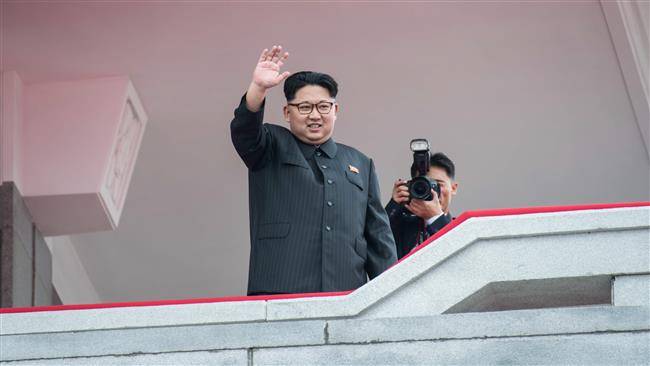CIA plot to assassinate North Korea’s Kim Jong Un foiled: KCNA
Shares

Pyongyang has reportedly foiled a plot by the US government and its main ally, South Korea, earlier this year to assassinate North Korean leader Kim Jong-un using biological and chemical agents.
North Korea’s official Korean Central News Agency (KCNA) made the claim in an article published on Friday, accusing Washington of using counter-terrorism and the so-called war on terror as a pretext to overthrow governments it deems hostile.
“In May this year, a group of heinous terrorists who infiltrated into our country on the orders of the Central Intelligence Agency (CIA) of the US and the South Korean puppet Intelligence Service with the purpose of carrying out a state-sponsored terrorism against our supreme headquarters using biological and chemical substance were caught and exposed,” the KCNA wrote.
“This palpably shows the true nature of the US as the main culprit behind terrorism,” it added.
The article also said the US “changes its colors” like a “chameleon” to justify toppling governments, especially in the Middle East, adding that Washington interchangeably uses counter-terrorism and the non-proliferation of weapons of mass destruction to justify its invasions of Afghanistan, Iraq and Libya.
The KCNA cited Iraq and Libya as examples of governments that halted their nuclear programs only to be later attacked by the US.

The Friday article also said North Korea’s commitment to fighting terrorism and said, US meddling is “the main reason international terrorism is not yet annihilated.”
Pyongyang had previously claimed in an official report that, “The US has fully revealed its criminal scenario to make no scruple of using biochemical weapons” to destroy North Korea and take over the world, accusing Washington of developing “Plan Jupiter,” a biochemical operation allegedly designed to overthrow Kim.
The United States and North Korea have been at loggerheads over Pyongyang’s weapons and nuclear programs and Washington’s military posture against the North.
Pyongyang says it will not give up on its nuclear deterrence unless Washington ends its hostile policy toward the country and dissolves the US-led UN command in South Korea. Thousands of US soldiers are stationed in South Korea and Japan.
Tensions have recently significantly risen between North Korea and the US. The two countries have been trading threats of military action against one another, and there is a potential for a real armed conflict to erupt.
US President Donald Trump has taken a tough stance, threatening to “totally destroy” North Korea if necessary and calling the North Korean leader names. Kim has responded with threats, and name-calling, of his own.
US warship heading to Korean waters for drills
Amid tensions, the US sent the super-carrier USS Ronald Reagan along with nearly 80 aircraft on board and a nuclear-powered submarine to the Korean Peninsula to join the South Korean military for a joint drill amid heightened tensions with Pyongyang.

Citing an unnamed South Korean official, Yonhap News agency reported that Washington and Seoul will conduct joint drills to detect, track, and intercept ballistic missiles, in addition to anti-submarine warfare training.
A US commander said the exercise, due on October 20, is aimed at preparing the US military to defend its allies against what he called Pyongyang’s threats.
“The United States has been very clear about leveraging all options in order to get North Korea to change its path,” Rear Admiral Marc Dalton, commander of the USS Ronald Reagan’s strike group, told the South China Morning Post.
This comes amid reports by Russian lawmakers visiting North Korea this week that Pyongyang was planning to test a new long-range missile.
Prior to joint military drill between US and South Korea in August, Pyongyang threatened “merciless retaliation,” saying that the exercises, which it claims are an invasion rehearsal, could lead to an “uncontrollable phase of a nuclear war.”
Pyongyang caused an uproar when it conducted its sixth and biggest nuclear test on September 3. The nuclear test significantly raised already high tensions with the United States, South Korea and Japan.
The North also recently fired two missiles over Japanese airspace, causing further tensions.
North Korea is under growing international pressure over its missile and nuclear programs and has been subjected to an array of sanctions by the United Nations.
